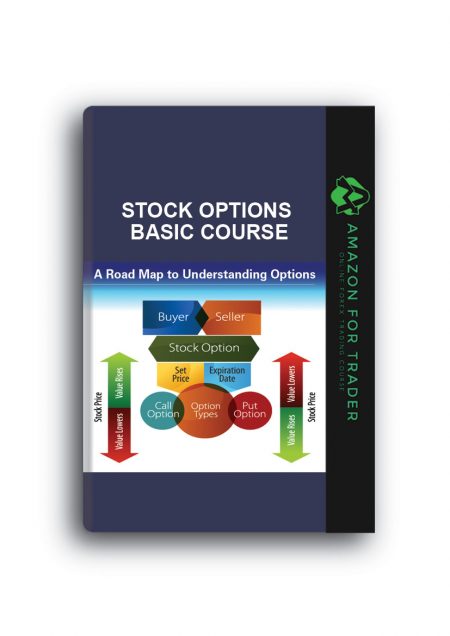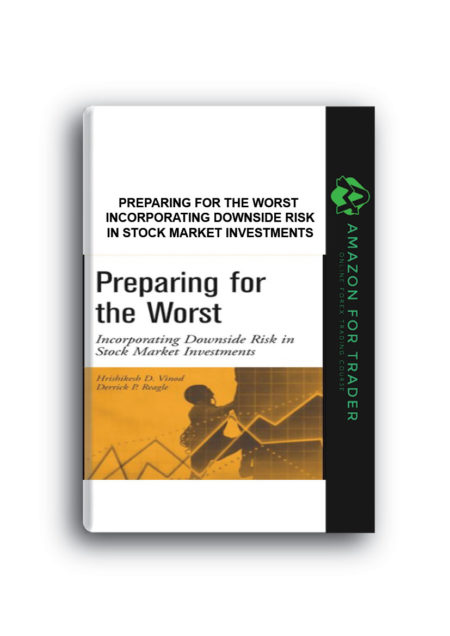Kevin Kelly – New Rules for the New Economy
Kevin Kelly – New Rules for the New Economy
Size: 543 KB
Forget supply and demand. Forget computers. The old rules are broken. Today, communication, not computation, drives change. We are rushing into a world where connectivity is everything, and where old business know-how means nothing. In this new economic order, success flows primarily from understanding networks, and networks have their own rules. In New Rules for the New Economy, Kelly presents ten fundamental principles of the connected economy that invert the traditional wisdom of the industrial world.Succinct and memorable, New Rules explains why these powerful laws are already hardwired into the new economy, and how they play out in all kinds of business — both low and high tech — all over the world. More than an overview of new economic principles, it prescribes clear and specific strategies for success in the network economy. For any worker, CEO, or middle manager, New Rules is the survival kit for the new economy.
Amazon.com Review
There’s hype and then there’s the Internet. The widespread emergence of the World Wide Web and the idea of a network economy have set new records for excess in overheated marketing campaigns, breathless newspaper and magazine articles, and topsy-turvy financial markets. From his perch as founding editor of Wired magazine, Kevin Kelly has long been one of the new economy’s chief hypesters. In New Rules for the New Economy, Kelly tries to encapsulate the characteristics of this emerging economic order by laying out 10 rules for how the wired world operates. The result is a dizzying, sometimes confusing, but always thought-provoking look at the behavior of networks and their effect on our economic lives. At the root of this network revolution is communication. As Kelly writes:
Communication is the foundation of society, of our culture, of our humanity, of our own individual identity, and of all economic systems. This is why networks are such a big deal. Communication is so close to culture and society itself that the effects of technologizing it are beyond the scale of a mere industrial-sector cycle. Communication, and its ally computers, is a special case in economic history. Not because it happens to be the fashionable leading business sector of our day, but because its cultural, technological, and conceptual impacts reverberate at the root of our lives.
Kelly’s genius lies in synthesizing large amounts of information in unique and interesting ways. His ability to turn a phrase is reflected in the names he gives to his 10 rules, and it makes this book a pleasure to read. Some, for example, are: “Embrace the Swarm: The Power of Decentralization” (Rule 1); “No Harmony, All Flux: Seeking Sustainable Disequilibrium” (Rule 8); and “Let Go at the Top: After Success, Devolution” (Rule 6). A few of his ideas have a kind of Teflon quality that makes them elusive and difficult to evaluate. But that’s OK. Like other prognosticators of the future–Alvin Toffler and John Naisbitt come to mind–Kelly’s job is to imagine a new world. Far from hype, New Rules for the New Economy is required reading for anyone pondering business in the not-too-distant future. –Harry C. Edwards –This text refers to an out of print or unavailable edition of this title.
From Publishers Weekly
The “new economy,” posits Wired executive editor Kelly in his smart but confusing book, “has three distinguishing characteristics: It is global. It favors intangible thingsAideas, information, and relationships. And it is intensely interlinked.” Kelly uses this system of fluid networks to replace traditional linear models of business interrelationships. In one “rule,” Kelly unexpectedly suggests that a company’s goods become more valuable as their price moves closer “to free”; in another he urges companies to abandon the pursuit of proven successes. If these claims at first appear dubious, closer examination shows that they’re not without credibility. In a network economy, he argues, selling technologies cheaply increases supply and spurs demand for valuable services that use these technologies. Relying on proven successes, Kelly says, discourages companies from developing new technologiesAthe linchpin of a rapidly changing network economy. Unfortunately, Kelly builds his case in a haphazard, often overheated way, complete with empty jargon like “re-intermediation.” Even when offering the more concrete observation that a network economy means that customersAnot vendorsAoften drive transactions, Kelly can’t resist straying into a discussion of privacy on the Net. Perhaps the author intended his jumble to serve as a metaphor for the often overwhelming interconnectivity he describes, but readers will have a hard time working through the muddle and hype. B&w illustrations throughout. Author tour. (Oct.) FYI: Cornell/ILR’s book of the same title on the changing demcgraphics of the American workforce was reviewed in the August 10 issue.
Copyright 1998 Reed Business Information, Inc. –This text refers to an out of print or unavailable edition of this title.
Get Download Links For Membership
[center][b][color=red]You are not VIP Member[/color][/b]
[i]Please contact Skype or Gmail for VIP membership and be able to download this item.[/i][/center]


 Kesra Nermend - Experimental And Quantitative Methods In Contemporary Economics
Kesra Nermend - Experimental And Quantitative Methods In Contemporary Economics STOCK OPTIONS BASICS COURSE - Follow Me Trades
STOCK OPTIONS BASICS COURSE - Follow Me Trades ORDERFLOWS - THE ORDER FLOW PLAYBOOK
ORDERFLOWS - THE ORDER FLOW PLAYBOOK Moorad Choudhry – The Bond & Money Markets
Moorad Choudhry – The Bond & Money Markets Dana Derricks – Dream 100 Challenge
Dana Derricks – Dream 100 Challenge Svetlozar T. Rachev - Bayesian Methods in Finance
Svetlozar T. Rachev - Bayesian Methods in Finance Alex Szweda – Elliott Wave Theory With Fibonacci
Alex Szweda – Elliott Wave Theory With Fibonacci Raymond Merriman – The Gold Book
Raymond Merriman – The Gold Book John Demartini – 7 Powers Package
John Demartini – 7 Powers Package Udemy - Advanced Stock Trading Course + Strategies
Udemy - Advanced Stock Trading Course + Strategies Naked Forex Now – fxjake – Kangaroo Tails 2018
Naked Forex Now – fxjake – Kangaroo Tails 2018 Joseph R. Hooper - Covered Calls and LEAPS- A Wealth Option
Joseph R. Hooper - Covered Calls and LEAPS- A Wealth Option Maurice Obstfeld, Kenneth Rogoff – Foundations of International MacroEconomics
Maurice Obstfeld, Kenneth Rogoff – Foundations of International MacroEconomics Management Dilemmas - The Theory of Constraints Approach to Problem Identification and Solutions
Management Dilemmas - The Theory of Constraints Approach to Problem Identification and Solutions Jack Schwager – A Complete Guide to the Futures Markets
Jack Schwager – A Complete Guide to the Futures Markets Frederic Patenaude - The Greatest Cure on Earth
Frederic Patenaude - The Greatest Cure on Earth Billion Forex Group – Forex Course
Billion Forex Group – Forex Course Jasonalerts - Jason Alerts Course
Jasonalerts - Jason Alerts Course Ed Ponsi – Forex Patterns & Probabilities
Ed Ponsi – Forex Patterns & Probabilities WEEKLY WIRES CLASS - SIMPLER TRADING
WEEKLY WIRES CLASS - SIMPLER TRADING Springs and Upthrusts - The Ultimate Guide
Springs and Upthrusts - The Ultimate Guide Options Flow Secrets - Simplertrading
Options Flow Secrets - Simplertrading Seán Dineen - Probability Theory In Finance
Seán Dineen - Probability Theory In Finance Udemy - Python para Data Science e Machine Learning – COMPLETO
Udemy - Python para Data Science e Machine Learning – COMPLETO Ross Minchev, Jordon Schultz – Pin Academy (PAPS)
Ross Minchev, Jordon Schultz – Pin Academy (PAPS) Your Guided Tour to Making Money Trading Online from Anywhere in the World
Your Guided Tour to Making Money Trading Online from Anywhere in the World Bruce Babcock - The 80% Solution S&P Systems
Bruce Babcock - The 80% Solution S&P Systems Mo Bunnell – GrowBIG Foundations
Mo Bunnell – GrowBIG Foundations Strike Zone Strategy 2.0 Elite Package - Joe Rokup - Simpler Trading
Strike Zone Strategy 2.0 Elite Package - Joe Rokup - Simpler Trading Hrishikesh Vinod, Derrick Reagle – Preparing for the Worst Incorporating Downside Risk in Stock Market Investments
Hrishikesh Vinod, Derrick Reagle – Preparing for the Worst Incorporating Downside Risk in Stock Market Investments Tomas A.Aizpuru – Advanced Courses of Mathematical Analysis I
Tomas A.Aizpuru – Advanced Courses of Mathematical Analysis I





